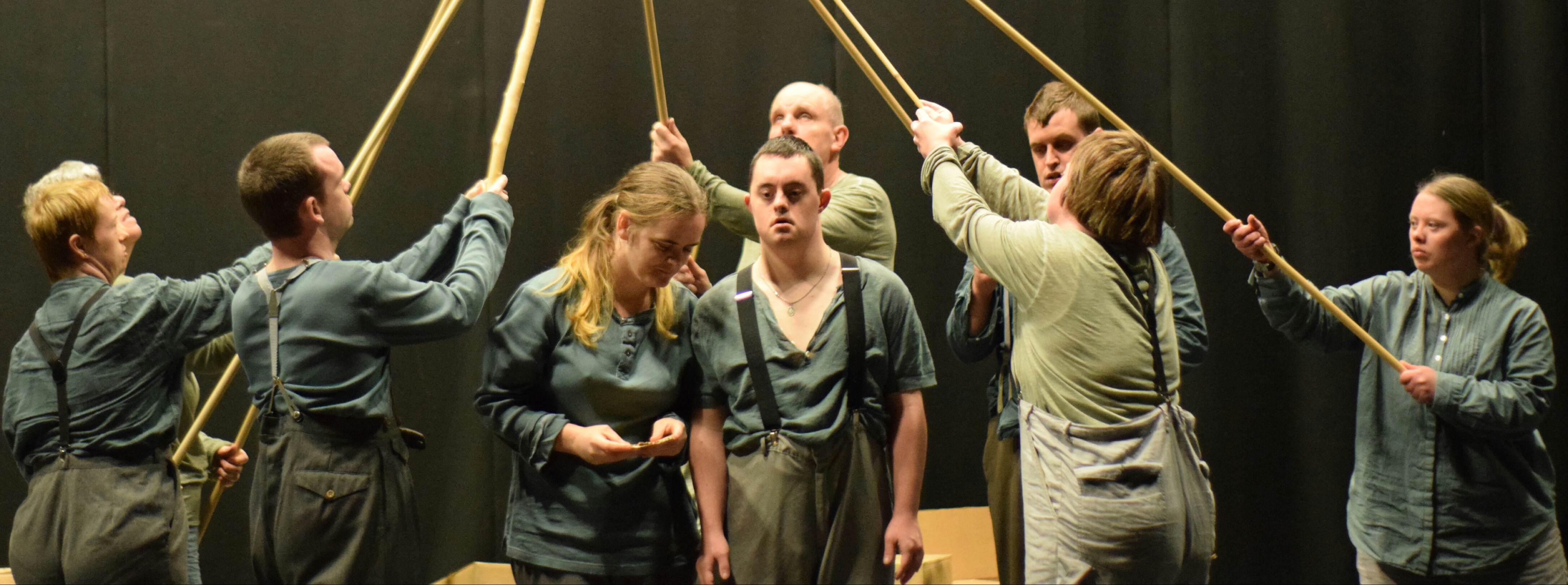
The setting of Utopia is an imaginary island, based on the actors reflections on what it would be to start again. As we have developed the piece, the world of the island has been stripped back to a literal place of starting again. The characters are born out of the mud, their language is one of instinct and emotion, moving without the restrictions of the real world. If a mud person sees the sun they lie down and look at it, they crawl, roll, run as the mood takes them. As their world grows the Mud people begin to look at our world and examine moments, things, feelings that they do not have in their world.
Utopia –' the perfect place '– early in the process we decided as a group that there can be no perfect world. There will always be some darkness to allow us to truly feel the light and sadness to allow us to embrace the joy. So, really if we get to start again, will anything really change?
Someone will always want power, someone will always try to take charge, someone will always try to make decisions for us.
Utopia examines a world without the trappings of our world, a world where there is very little, boxes become home, blankets become symbols of emotion, we move between an instinctual world of the island to 'real world' moments, exposing isolation, power and the struggle to communicate and connect.
This play aims to ask us as an audience to look at moments, pictures and movements and question what we really see, what is real and what is not real.
Creating the play Utopia has been as much about the process between the actors and director, as the final production. We met with a blank canvass and began exploring ideas of what the perfect world would/could be, we asked ourselves questions and explored the answers though improvisation and the creation of moving pictures – snapshots of time – from which we built the world of the play. At all times elements of the piece have come from the responses of the actors themselves, as a group exploring a new language of a new place.